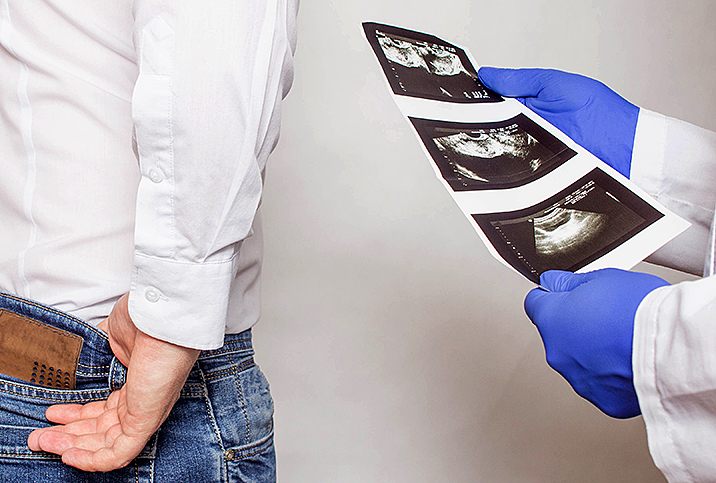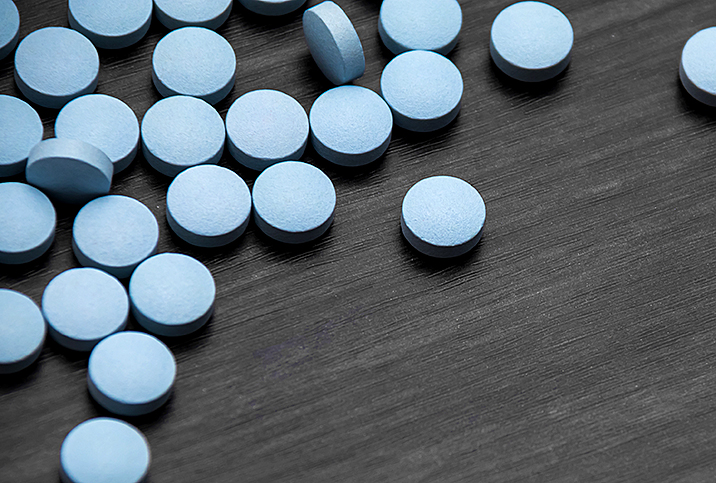3 Prostate Conditions That Can Cause ED

For a man to get an erection, a complex and precise symphony of electrical impulses, chemicals, blood flow and mental stimulation is required. So there’s a lot that can go awry along the way, including issues with the prostate gland and erectile dysfunction (ED).
In the U.S. alone, tens of millions of men have been affected by ED, whether it's chronic, sporadic or situational. In fact, one 2016 survey that relied on self-reporting placed the number as high as 47.5 million, and since shame about the condition often drives men not to report it, that number is likely higher. A vast majority of men who experience ED never seek treatment, possibly because it’s widely misunderstood to be caused primarily by psychological issues or thought to be merely a natural consequence of aging.
However, there are many cases in which ED has a physical cause, and can therefore be diagnosed and treated like any other medical issue. While these physical causes can be everything from blood flow to nerve problems, the prostate is often linked as well.
Three of the top prostate issues that can cause or exacerbate ED are prostate cancer, benign prostatic hyperplasia (BPH) and prostatitis.
Prostate cancer
The sudden onset of erectile dysfunction is a strong indicator you may be developing prostate cancer and should report it immediately to a doctor.
Your physician will likely perform a digital rectal exam (DRE) first to see if there are any obvious signs of incipient prostate cancer, like hardness to the gland or a change in size. From there, you may be asked to take a prostate-specific antigen (PSA) test, which assesses your blood for elevated PSA levels, which can indicate several things, including prostate cancer. (Your doctor should always ask for a retest of a PSA if you show elevated levels, simply because it’s not a conclusive test and numerous other causes can be behind elevated PSA levels.)
If a PSA retest still shows an elevated count, a biopsy may be appropriate. It helps your doctor identify and locate any cancerous cells and use that information to create a plan of action.
Prostate cancer has a 90 percent survival rate if it’s caught early. So if you experience sudden ED issues, a chat with your doctor is worth the effort, just in case.
Benign prostatic hyperplasia
Benign prostatic hyperplasia (BPH) is a non-cancerous enlargement of the prostate, a condition that affects many men as they age. Many men probably don’t realize that studies show a significant correlation between prostate volume (size) and difficulty getting and maintaining an erection.
To add insult to injury, some of the anti-testosterone medications used to treat BPH are also known to cause ED, drugs like finasteride (Proscar, generic) and dutasteride (Avodart). Newer treatments that use alpha-blockers instead, such as tamsulosin (Flomax), terazosin (Hytrin) and doxazosin (Cardura), have been shown to help with the symptoms of benign prostatic hyperplasia with less risk of erectile problems.
Lifestyle and diet modifications can help minimize excess prostate enlargement, as can some over-the-counter products. If a supplement is your preferred method, especially one that combines three prostate-friendly herbs in one capsule, look at Prostate Health vitamins from Giddy Health. Utilizing saw palmetto, stinging nettle and pygeum, this supplement is formulated to help manage prostate size and maintain a healthy urinary flow. And its microbead technology ensures a timed release throughout the day.
Prostatitis
This condition is an inflammation of the prostate gland. It can be acute, meaning it’s likely from a bacterial infection, or chronic. Symptoms of prostatitis include frequent urination, pain during urination, discharge from the penis or a fever.
Prostatitis can also cause erectile dysfunction, especially in its more severe form. What’s more, it can cause painful erections and painful ejaculations, both of which can certainly inhibit sexual pleasure and contribute to ED.
If you experience any of these symptoms, see your doctor right away, because many of them overlap with symptoms of numerous sexually transmitted infections (STIs), as well. A round of antibiotics is usually enough to clear up prostatitis. However, it can take several weeks for the infection to be completely eradicated and for erections to return to normal.
The good news about prostate conditions that cause ED is they are all treatable to one degree or another. So if you suffer from a sudden onset of erectile issues, don’t panic—and definitely don’t go into a spiral of self-doubt. Get yourself checked out. With any luck, it’ll merely be a mechanical issue that your doctor can treat right away and get you back to your usual self.

















